The top secret mission before D-Day
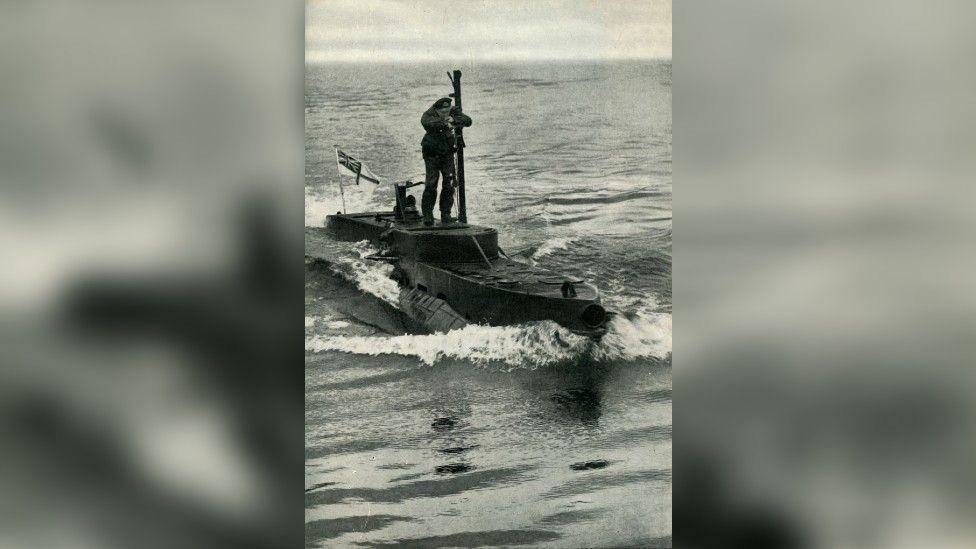
Eighty years ago this month, British X-Craft midget submarines were used to help plan the Normandy landings
- Published
It was a military operation crucial to the end of World War Two - but it took place six months before D-Day.
In January 1944, 80 years ago this month, five men crammed into a 51ft (15.5m) X-craft midget submarine, and headed for Nazi-occupied France.
They sat just offshore, observing the Germans through a periscope, and swimming ashore under the cover of darkness to inspect the beaches in preparation for the Normandy landings.
"It's pitch black - they did it on a moonless night for a reason, because it meant they were less likely to be discovered," said Andrew Griffin, a history researcher from Hayling Island.
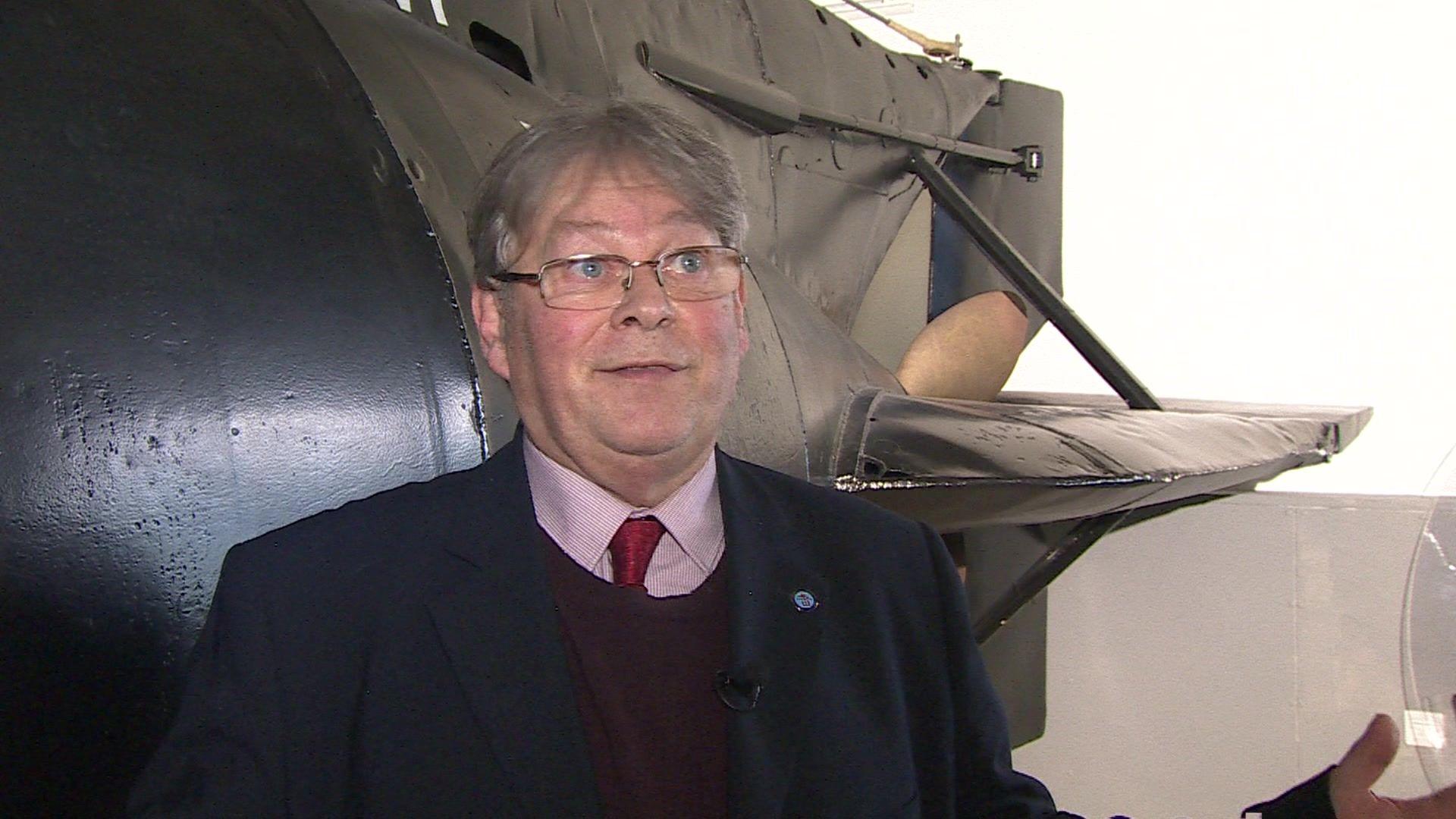
History researcher Andrew Griffin the men faced "life and death decisions every second"
The island was the base of a secret unit called the Combined Operations Pilotage Parties, which carried out the reconnaissance mission.
Their mission was named Operation Postage Able, and one of the men on board was Logan Scott-Bowden.
His son, Robbie Scott-Bowden, said his father and his team were "wonderful guys".
"I think they were all very, very modest about what they did," he said.
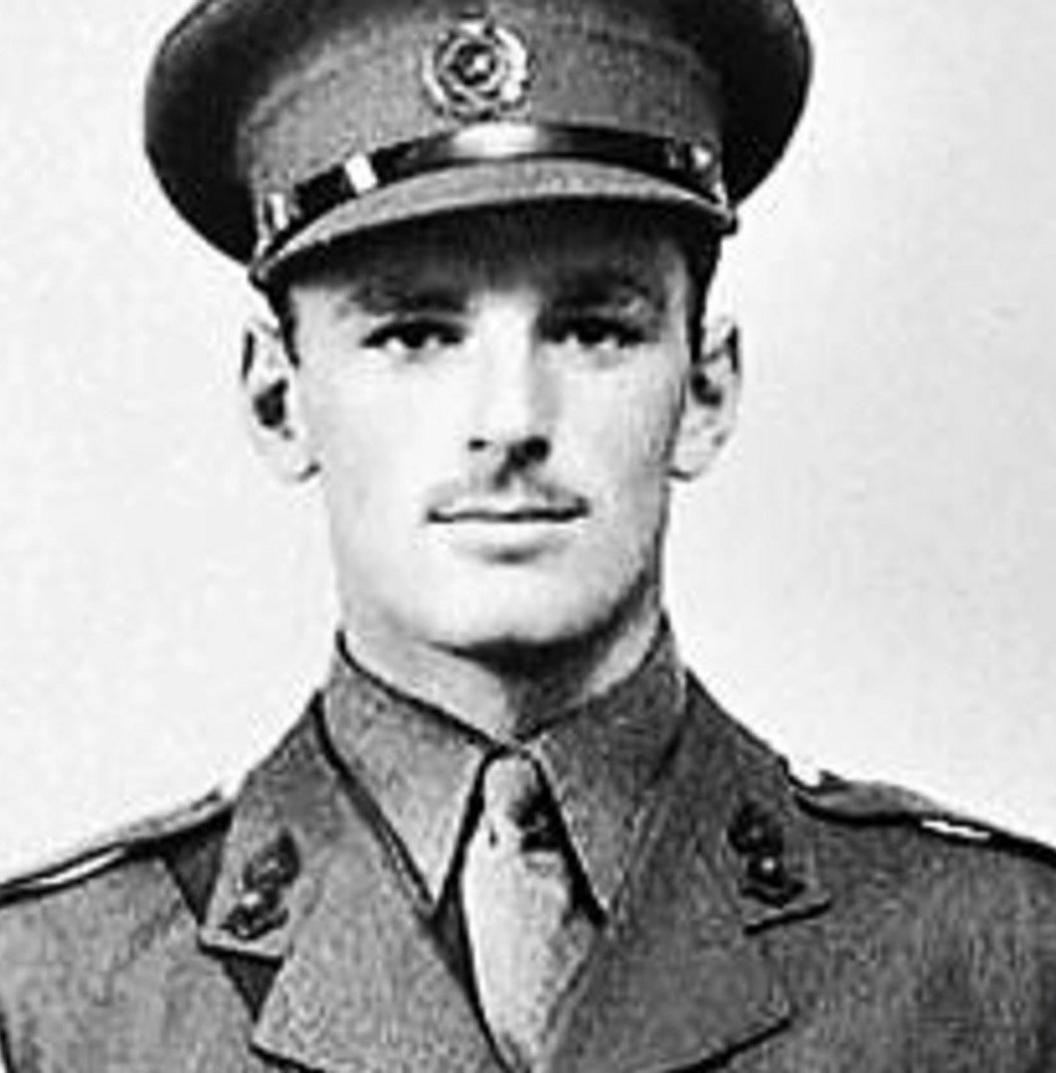
Logan Scott-Bowden was one of the five men on the mission
The people planning D-Day needed to know what state the German coastal defences were in and whether the beaches would support tanks, so the men swam ashore - under the noses of the Germans - for two nights.
"These guys were dealing with life and death decisions every second," said Mr Griffin.
"They were in their early 20s at best."
When Mr Scott-Bowden and the team returned to Gosport, he told an American General that landing on Omaha Beach would be very difficult.
"He went out of his way to say that to General Omar Bradley," said Robbie.
"But Omar Bradley said 'I know, son', and he put his arm round him, said 'don't worry. We understand'."
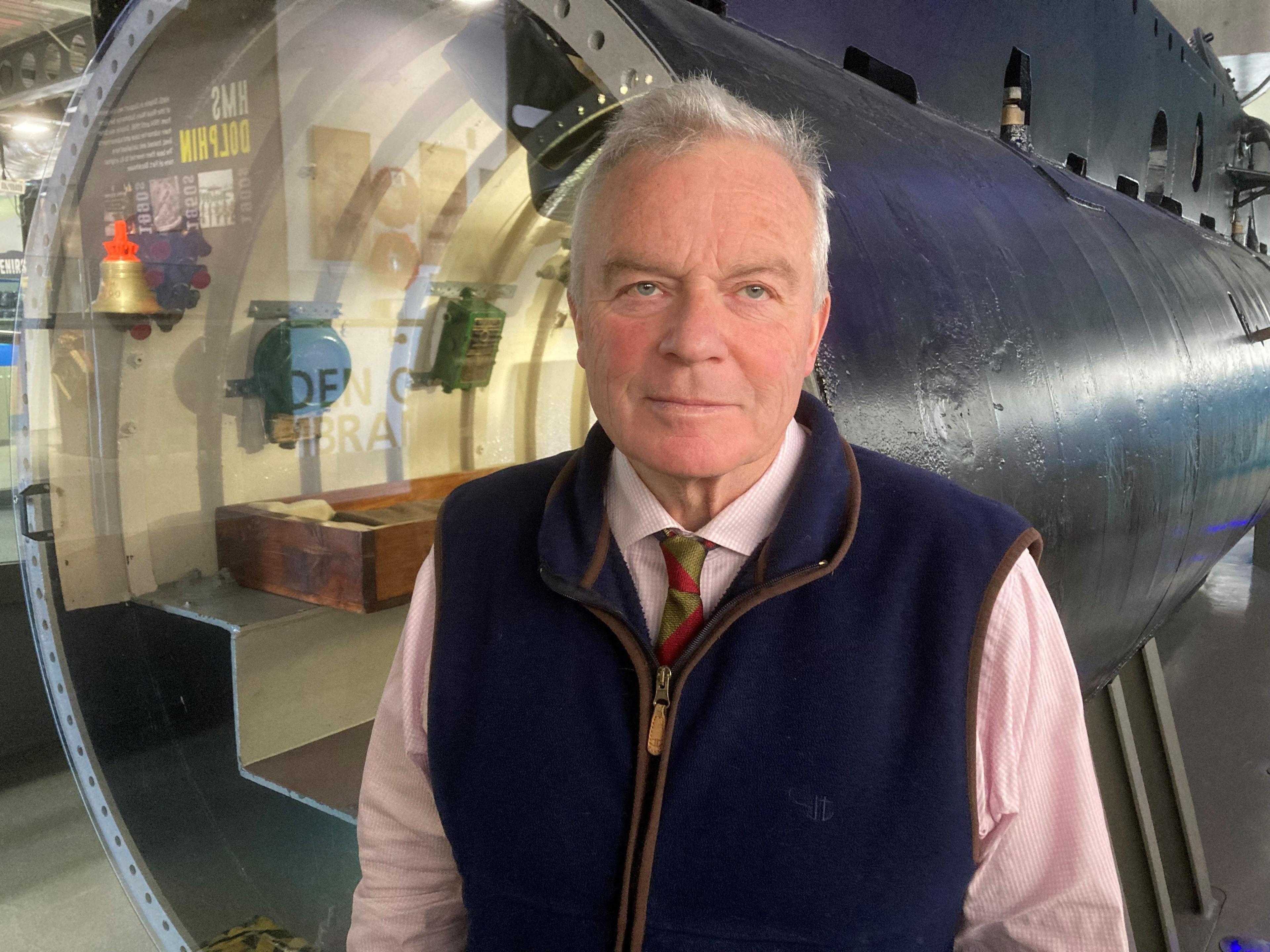
Robbie Scott-Bowden said his father was "very, very modest" about his role
Six months later, on 6 June 1944, the Allies landed more than 150,000 troops on five beaches in Normandy - and Logan Scott-Bowden was there to see it.
"My father cannot speak more highly of the 29th Division, of the bravery he saw on that day," said Robbie.
"He said [it] was just incredible."
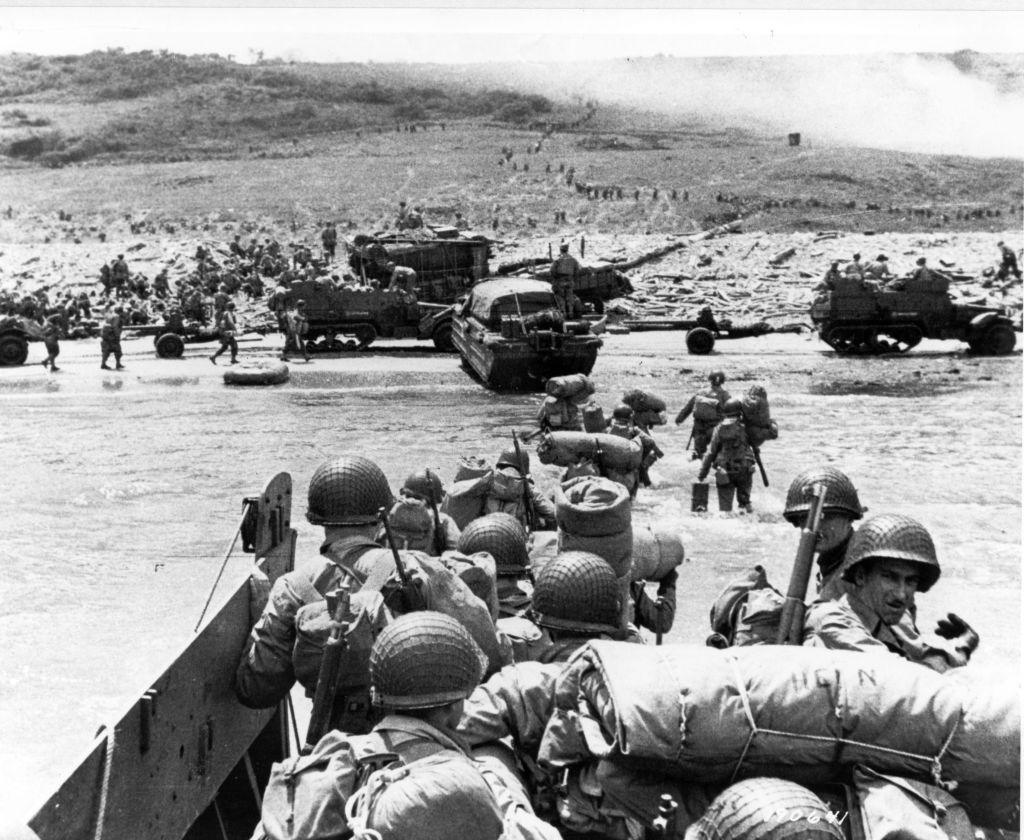
More than 150,000 troops landed at Normandy
D-Day was only the start of the operation in north-west Europe. The campaign was long and costly, but eventually paved the way for victory for the Allies.
But that might not have been possible without the little submarines scouting out the French coast in January 1944, according to Mr Griffin.
What's more, the relative success of the landings was partly due to the Allied deception campaigns, which convinced the Germans that the main invasion could still take place elsewhere.
"If they'd been caught, what would have happened to the D-Day plan?" said Mr Griffin.
Follow BBC South on Facebook, external, X, external, or Instagram, external. Send your story ideas to south.newsonline@bbc.co.uk, external.